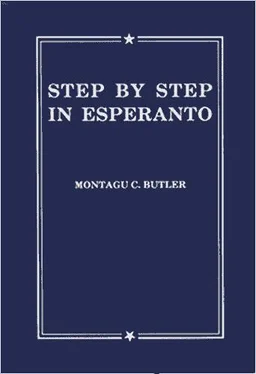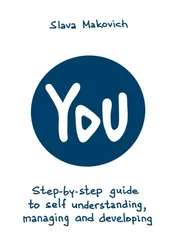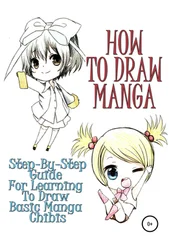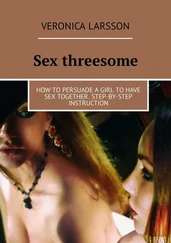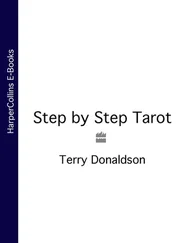Use de‑, dis‑, for‑, similarly with the roots blov, flu, flug, ir, met, naĝ, pel, send.
402. (a) Just as verbs denoting action in the present time (“in the present tense”) end in AS,so verbs denoting action in the past (“in the past tense”) end in IS.
Cp. French je vend IS (= mi vendIS). At the end of a book you see fin IS: mi finIS= have finished . Ext Ant = of the present: ext Inct = of the past.
Mi estis, I was .
Mi ne estis, I wasn’t .
Ni estis, We were .
Ni ne estis, We weren’t
Ĉu vi iris? Did you go?
Vi kantis, ĉu ne? You sang, didn’t you?
Vi ne kantis, ĉu? You didn’t sing, did you?
(b) Mi iris( I went ) also = I was going, I did go. More precise forms for these shades of meaning are available if necessary and will be given later.
403. Iam estis reĝo. Mi venis, vidis, venkis. (Li) Diris, kaj foriris. Dio donis, Dio prenis. Li neniam venkis la alfabeton. Li diris “adiaŭ” al la mondo surtera. Kio pasis, nin forlasis. Ne en unu tago kreskis Kartago ( Carthage ). Venis fino al mia Latino! Kiam pasis la aĝo, aperas la saĝo. Zamenhof estis homo granda, tamen tre modesta.Aperas prudento, kiam pasis la momento. Nuksojvenis, kiam dentoj elfalis. Tajloro krimis,botisto pendas. Se vi prenis la violonon, prenu ankaŭ la arĉon( bow ). Kion vi ne perdis( lost ), tion ne serĉu. Oni faris, oni ĉesis( stopped, left off 647); kaj ni ĉion forgesis. Kiu pekis( sinned ), tiu pagas. Kiu ne pekis! Kiu ne eraris! Li multe entreprenis( undertook ), sed ne multe eltenis.
404. “Kiu estis la patro de William Pitt?” “S‑ro Pitt.”
“Ĉu via edzino iris al la marbordo por la somera libertempo?” “Jes: mi bezonis ripozon.”
La edzo diris: “La edzino estas maldiligenta.” “La edzo” diris la edzino “estas maldiligenta.”
Ho patrino! La floro en la ĝardeno promenis! En la mateno ĝi estis en la sunlumo, kaj nun ĝi estas en la ombro( shadow ).
Patrino: “Montru al mi vian langon.” Knabo: “Tute ne! Kiam mi faris tion al la instruisto, li min batis.”
Instruisto: “Tiu eseo aspektas, kvazaŭ via patro skribis ĝin.” Knabo: “Kompreneble, sinjoro. Mi uzis lian plumon.”
Instruisto: “Iru al la mapo de la mondo, Tom, kaj montru al ni Amerikon.” ( Tom tion faras. ) “Tio estas ĝusta. Nu, knaboj, diru al mi, kiu eltrovis Amerikon?” Knaboj: “Tom.”
Patro: “Kaj nun, mia filo, vi aŭdis, kion via patro faris dum la Granda Milito.” Filo: “Diru al mi, patro: kial oni bezonis la aliajn soldatojn?”
La malgaja letero . Angla knabino korespondis kun negro.Sur unu el liaj leteroj estis inka makulo. La knabino montris la leteron al amikino, kaj diris: “Li estas tre malfeliĉa. Rigardu la larmon, kiu falis el lia okulo, dum li skribis al mi!”
Henriko: “Ĉu oni ĉiam rikoltas tion, kion oni semis?” Patro: “Jes, mia filo.” “Nu, mi plantisterpomojn ( potatoes ). Divenu, kio venis?” “Terpomoj, kompreneble!” “Tute ne! Venis porko( pig ), kiu formanĝis la terpomojn.”
405. (a) He came (crept, dwelt, fell, flew, forgot, fought, grew, lay, ran, sat, sat-down, shone, slept, spoke, stood, stood-up, swam, thought, wept).
(b) Translate, and use in sentences with an object in -onafter the verb. Ate, began, bit, blew, bought, broke, built, caught, chose, drank, felt, found, held, hid, kept, knew ( kon, sci), led, saw, sent, sowed, sold, sowed, spent, struck, stung, taught, told, woke, wore, wrote.
(c) She was there, wasn’t she? She wasn’t there, was she? You were there, weren’t you? He didn’t go, did he? You’ve been asleep, haven’t you? Translate the two meanings of I read.
(d) Ludo de memoro kaj ripeto. Kiam mi vizitis Belgujon, mi aĉetis valizon. _______ valizon kaj du hundojn. _______ valizon, du hundojn, kaj silkajn ŝtrumpojn …
406. Iam mi havis sonĝon. En la sonĝo ĉiu, kiun mi renkontis( met ), parolis Esperanton. Kiam mi iris al la lernejo, la infanoj kaj la instruistino parolis al mi en Esperanto dum la tuta tago.
Post la temanĝo mi vizitis amikinon, kaj ŝi diris al mi “Venu kun mi al la butikoj!” Mi tre miris( wondered, was surprised ), kiam ankaŭ ŝi parolis Esperanton. Sed ŝi diris “Ho jes, oni instruas Esperanton en nia lernejo.”
Ni atingis( reached ) la butikon, kaj tie la vendisto demandis al mi en Esperanto “Kion vi deziras, fraŭlino?”
Kiam mi iris al la lito, mi diris “Bonan nokton!” al mia patro, kaj li respondis “Bonan nokton, Katlino!” Kaj la patrino diris “Bonan nokton, kara! Dolĉan dormon!”
Tio estis bela sonĝo, ĉu ne?
407. The diphthong UJsounds like uj in Hallelujah, oi in who is, glided together, with the stress on the u.Like AJ (144), EJ (364), OJ (37), it counts as one syllable.
Compare prujno, hoar-frost (two syllables); ruino(three syllables).
408. Like other adjectives, the words iu, kiu… (155)take Jto agree with a plural noun. The addition sum above shows that the plural of tiu( that ) is tiuj( those ). Similarly, the plural of ĉiu( each ) is ĉiuj( all, all the ).
Accent the i: i-uj, ki-uj, ti-uj, ĉi-uj, ne ni-uj .
Kiuj libroj? Which books?
Tiuj pomoj, those apples .
Ĉiuj floroj, all (the) flowers .
Iuj homoj,certain people.
409. So also when these words are used as pronouns (157). Kiu estas tie? Who is there? Kiuj estas tie? Who are there? Ĉiuj estas, All are . Iuj estas, some are. Tiuj estas, those are. Neniuj estas, None are.
410. Where nothing is gained by using the plural, prefer the singular. Thus, to translate All those that were there, one could say (literally) Ĉiuj tiuj, kiuj estis tie.But it would be much better to say simply Ĉiu, kiu estis tie,or even Ĉiu tie.So also Ne ĉiu frukto estas pomois usually preferable to Ne ĉiuj fruktoj estas pomoj.
Читать дальше
